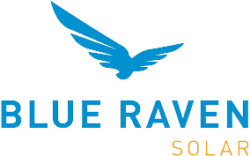Benefits of Solar Energy
Solar energy offers multiple perks. Here are some highlights.
- Reduced carbon footprint: Using clean solar power means you're less dependent on fossil fuels, which emit harmful greenhouse gasses.
- Better energy independence: Adding a battery backup or storage system lets you have trustworthy energy during grid outages and storms.
- Lowered energy bills: With solar energy systems, you create power without paying the tacked-on costs of grid-connected power. You can eliminate your bills completely if you go off-grid. Plus, a significant amount of states offer net metering, which permit you to earn money by selling your unused energy back to the grid.
What Solar Incentives Are Available to Fort Lauderdale Homeowners?
Florida homeowners who upgrade to solar could qualify for tax credits, reimbursements, rebates and special financing. Here are just a few of the local incentive programs.
Incentive Type: Sales Tax Incentive
Incentive Amount:
All
Incentive Type: Property Tax Incentive
Incentive Amount:
Residential: 100% of the added value
Non-Residential: 80% of the added value
Incentive Type: PACE Financing
Website: floridapace.govIncentive Amount:
Determined locally
Incentive Type: Loan Program
Website: lakelandelectric.comIncentive Amount:
$5,000
Incentive Type: Personal Tax Credit
Website: ecowatch.comIncentive Amount:
30% federal tax credit for systems placed in service after 12/31/2021 and before 01/01/2033. Good for: solar water heat, solar photovoltaics, biomass, geothermal heat pumps, wind (small), fuel cells using renewable fuels.
How To Choose the Best Solar Company in Fort Lauderdale
The more comprehensive your provider search is, the better your photovoltaic system will ultimately operate. Make your choice based on the following key factors.
Licensing and Training
Once an electrical professional in Florida has four years of field experience, including one year as an apprentice, they can take two tests to earn a CV license with the Florida Construction Industry Licensing Board. Florida also allows electrical contractors to install solar panels, but they may need to subcontract some tasks to a licensed roofer. You should also visit a company's website to learn about its private accreditations. Two of the most respected are the PV Installation Professional and Solar Heating Installer certificates, backed by the North American Board of Certified Energy Practitioners (NABCEP). Some companies don't publish this information online, so you should also ask your estimator about them.
Cost of Solar Panels in Fort Lauderdale
Your solar panels' style will impact how much energy you can produce. Monocrystalline panels are among the highest quality and cost the most but perform the best. Polycrystalline panels generate less, but they're a great traditional option for low budgets. Thin-film panels are excellent for non-traditional roof shapes and cost the least, but don't work well for large residential installations.
If you'd like to charge an electric vehicle (EV) or use your solar power in cloudy weather, you can pay extra for accessories. By selecting the right components, you can make your system more efficient and convenient to use. Not every solar company offers these optional components, so look for a company that installs them if it's crucial for you.
Generally speaking, it costs about $16,050 for a five-kilowatt solar array in Fort Lauderdale. This table shows more specific prices for different solar panel types and system components in your area.
| Solar Panel Cost | Average Cost |
|---|---|
| Solar Monocrystalline | $1,095 |
| Solar Polycrystalline | $854 |
| Thin-Film | $499 |
| Solar Battery | $701 |
| Solar Home EV Charger | $2,629 |
Financing Solar Energy in Fort Lauderdale
Choosing the correct financing solution will impact your overall solar system cost and potential savings. Common payment options include cash payments, loans, power purchase agreements, and leases. Though it requires a large up-front payment, cash is the most affordable choice because it doesn't accrue interest and qualifies you for incentives. Solar loans are the runner-up option. As with a car or home loan, you'll pay a monthly rate towards system ownership, including interest. You can still apply for valuable solar incentives, and depending on your lender, you could put as little as $0 down. Solar leases involve paying a set monthly rate to use rooftop panels. A PPA (Power Purchase Agreement) lets you pay a monthly rate determined by the energy you use, similar to an electric bill. We usually don’t recommend these two choices because you won't own the panels and are disqualified from using solar incentives. We advise working with a provider that offers multiple financing options. Ask each salesperson about what's available, and acquire more than one estimate for the best odds of keeping within your budget.
The table below lists the average payback periods for different capacities of solar systems in Fort Lauderdale.
A 26% federal solar tax credit applies to new home solar systems purchased through 2032. Additional incentives may be available through local governments, usually in the form of rebates and special financing programs.
| Solar System Capacity | Estimated Payback period |
|---|---|
| 1 kW | 1.7 years |
| 2 kW | 3.5 years |
| 5 kW | 8.6 years |
| 10 kW | 17.3 years |
Ready to Get a Quote on Your Solar Project?
Please enter a valid 5-digit zip code!
Frequently Asked Questions About Solar in Fort Lauderdale
How much money could I save by going solar in Fort Lauderdale?
Is solar energy widely available in Fort Lauderdale?
Will solar panels increase my Fort Lauderdale home value?
What can I do to assess my home's solar potential?
What care do my solar panels need, and how often do they need it?
What size should my new Fort Lauderdale solar system be?
How are traditional solar loans and PPAs different?
In contrast, solar loans can come from installer, local banks, specialty lenders and the government. You'll need to pass a credit check to qualify for most of them. While the upfront costs are greater, and you'll be responsible for maintenance, you'll also have total ownership and can apply for many more benefits.
To share feedback or ask a question about this article, send a note to our Reviews Team at reviewsteam@thisoldhousereviews.com.



















